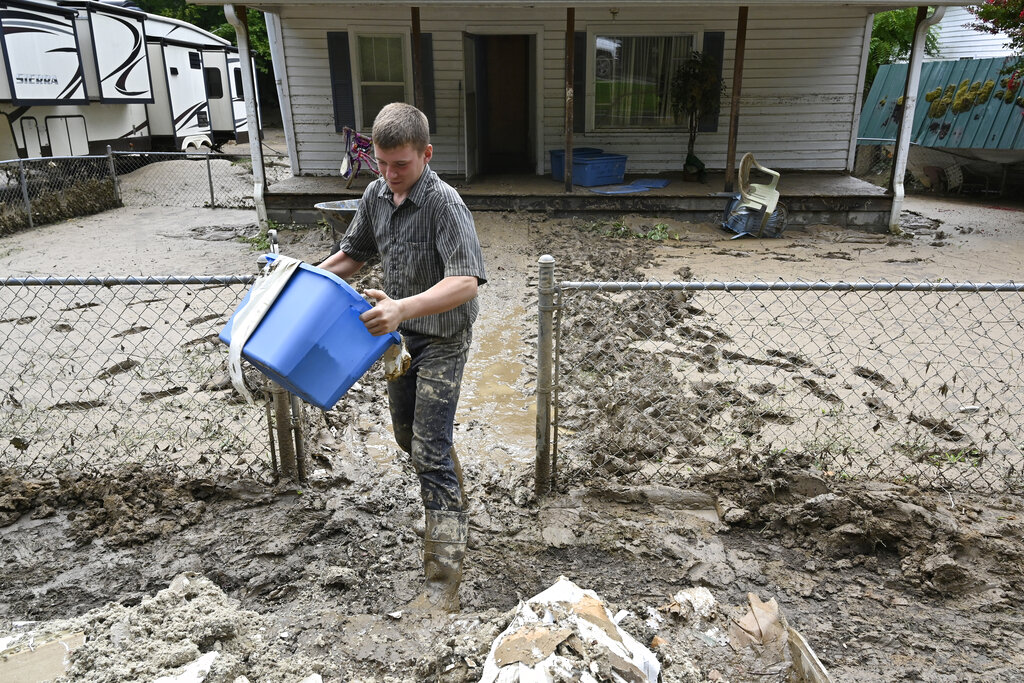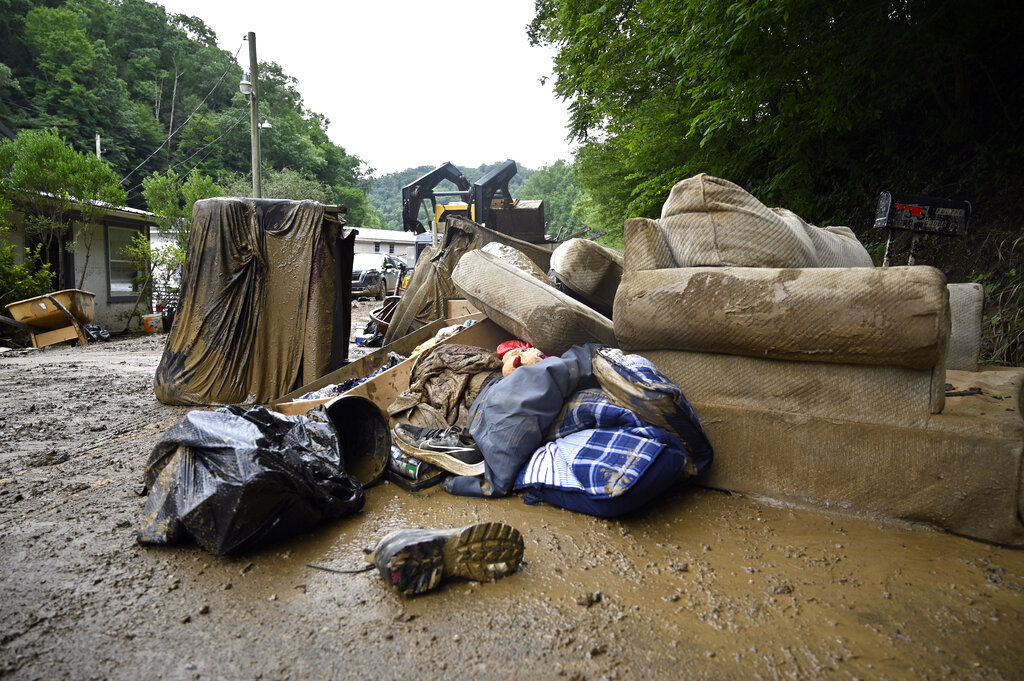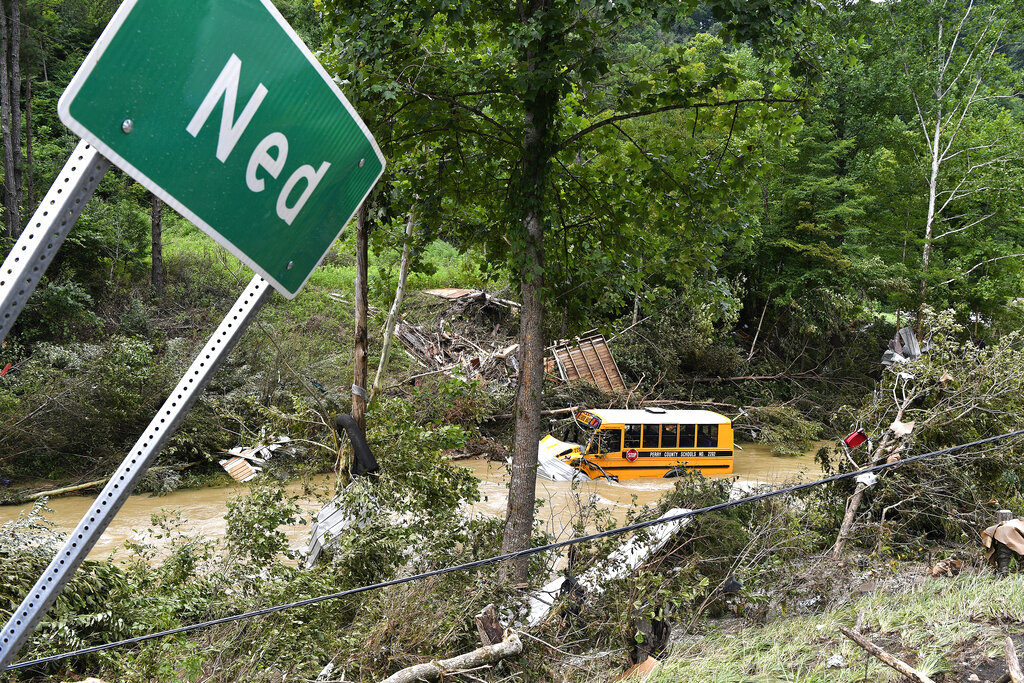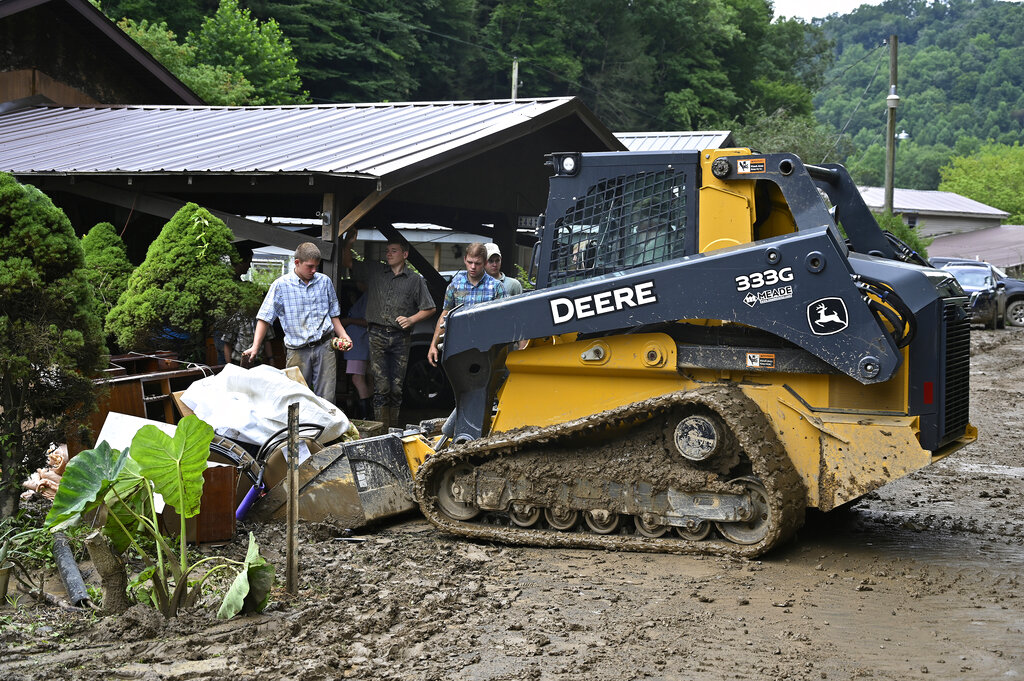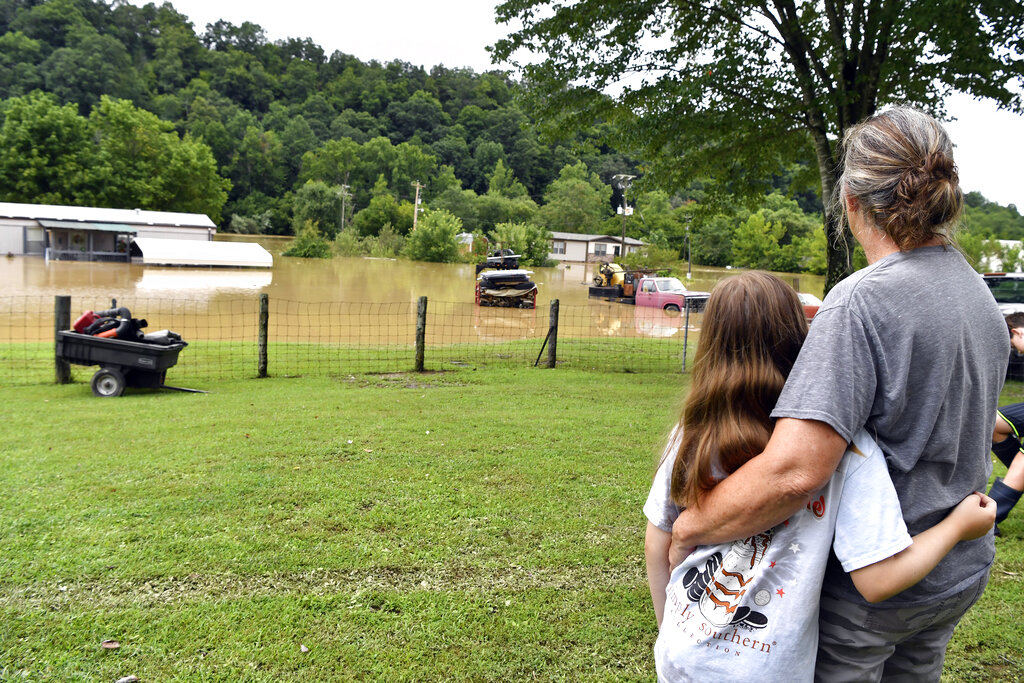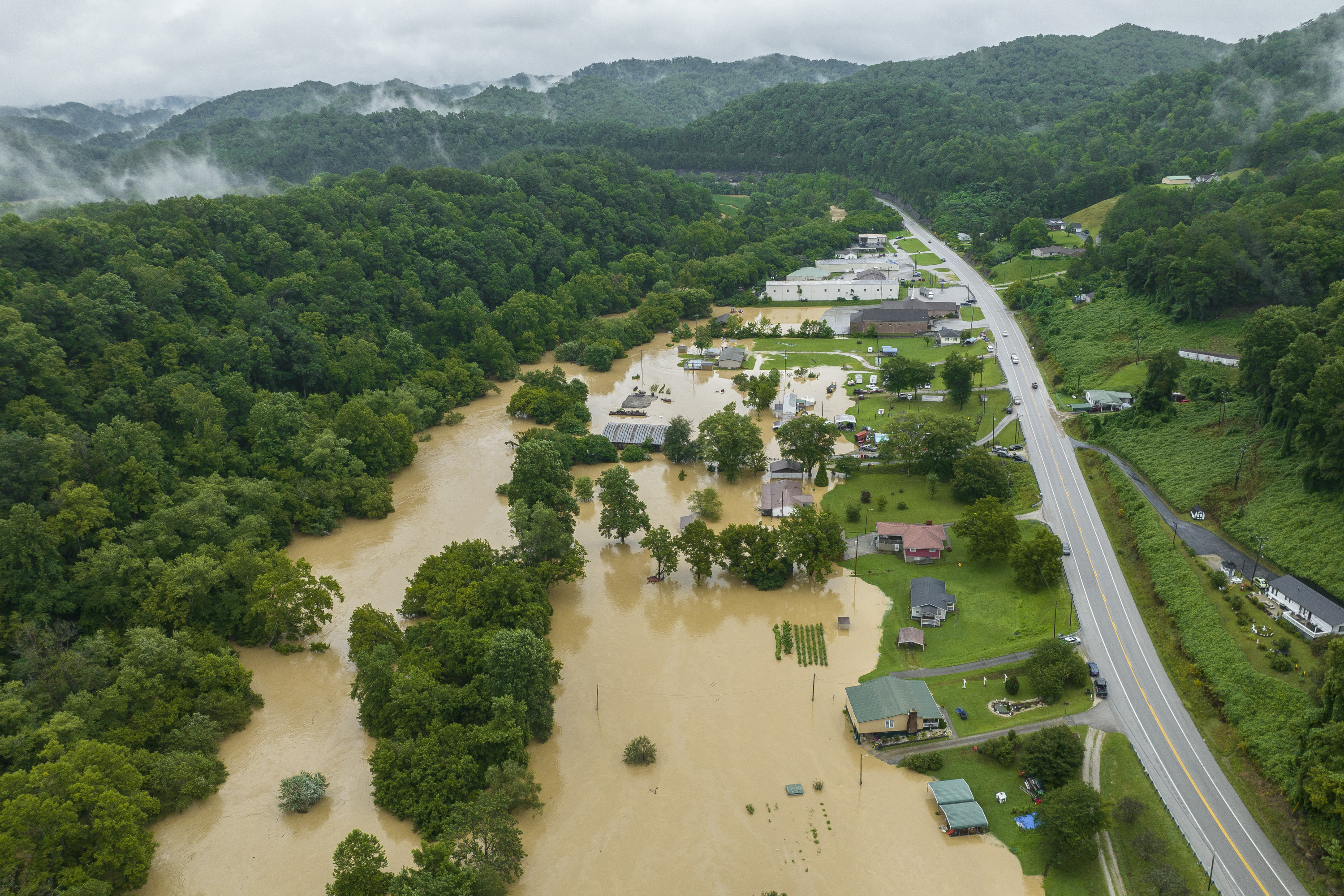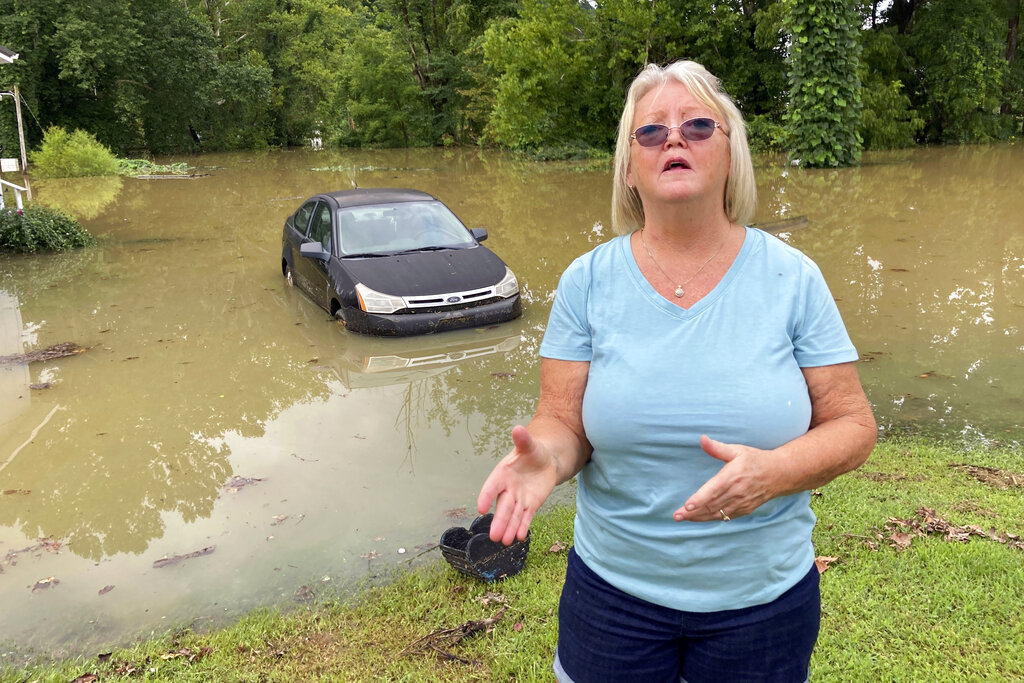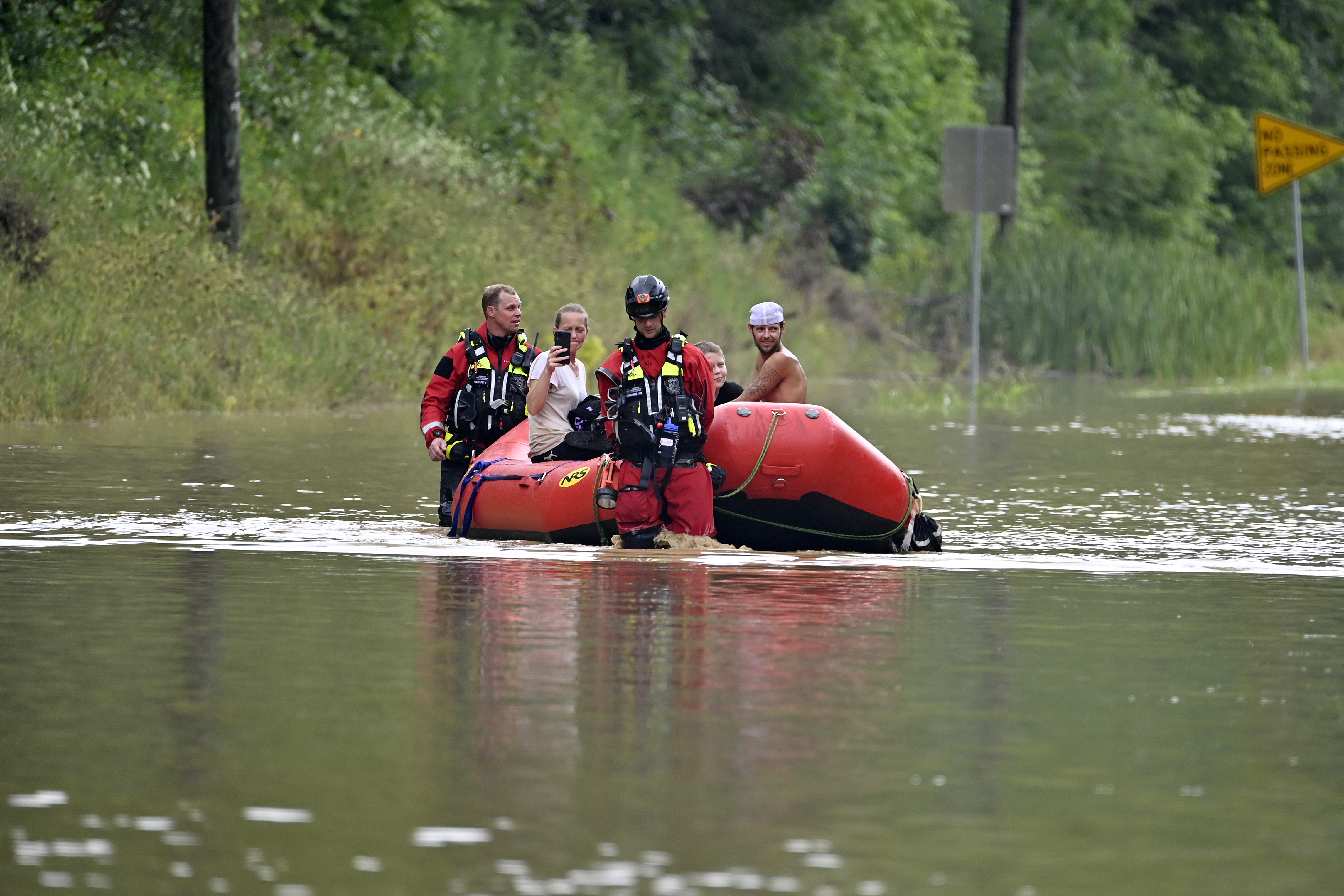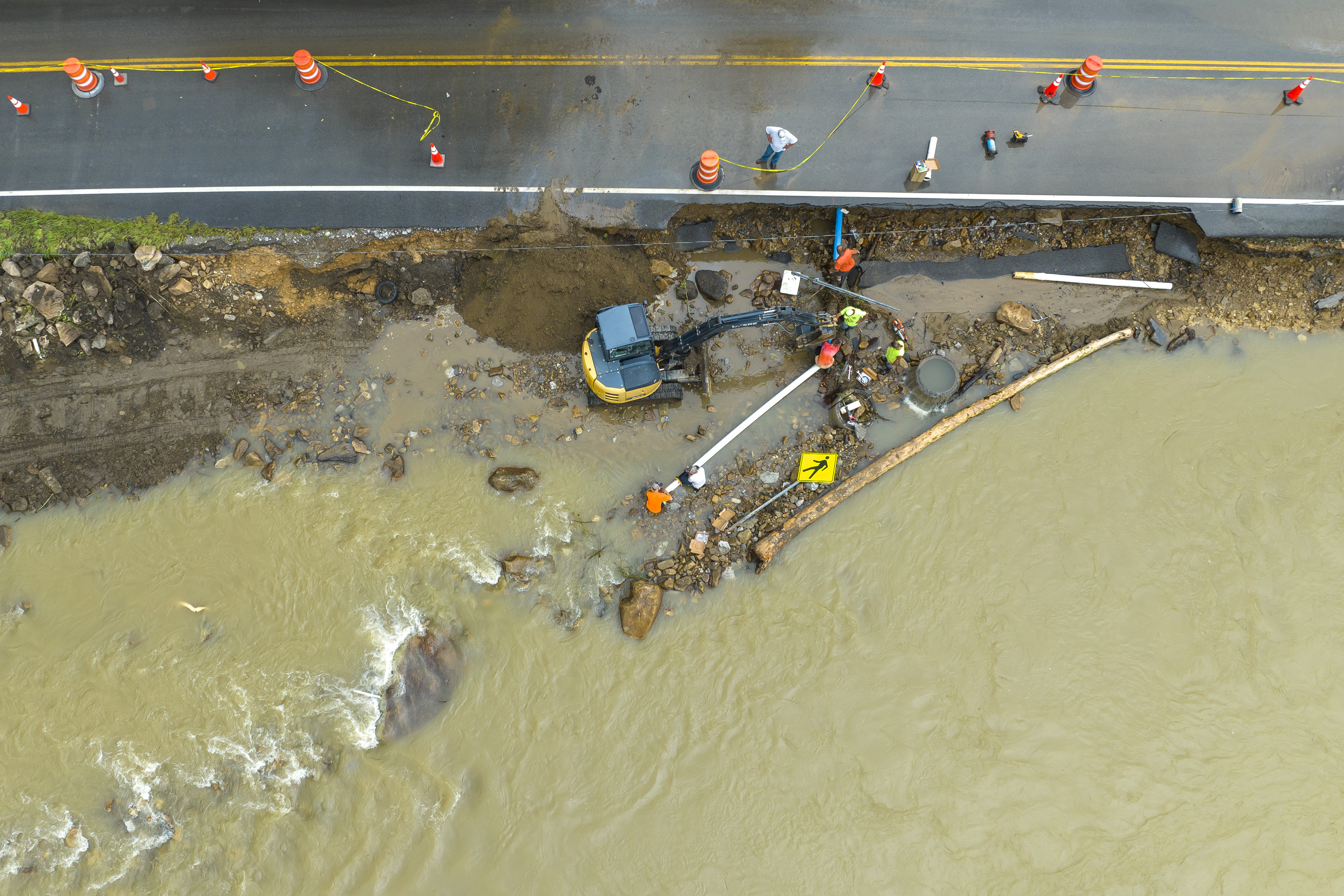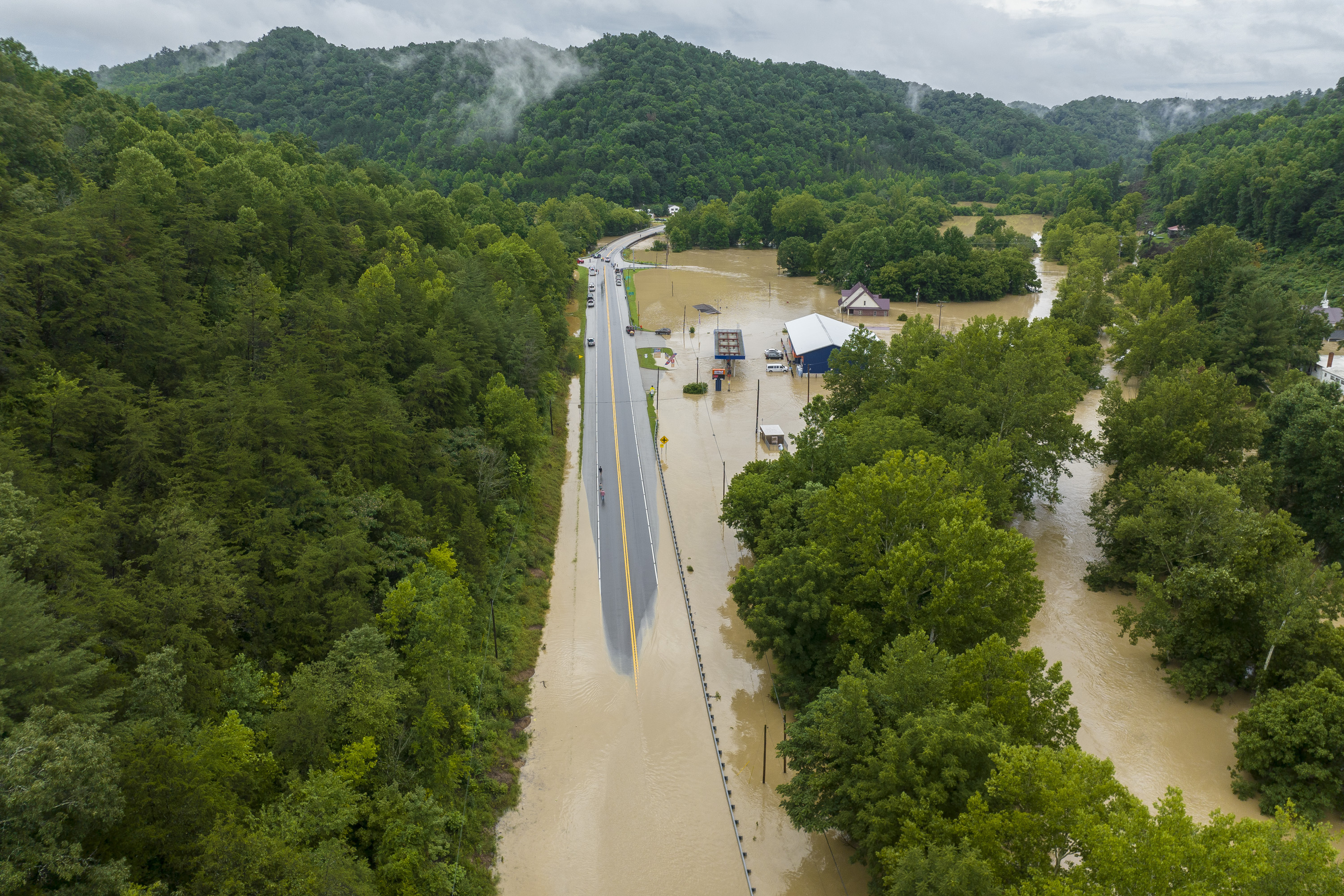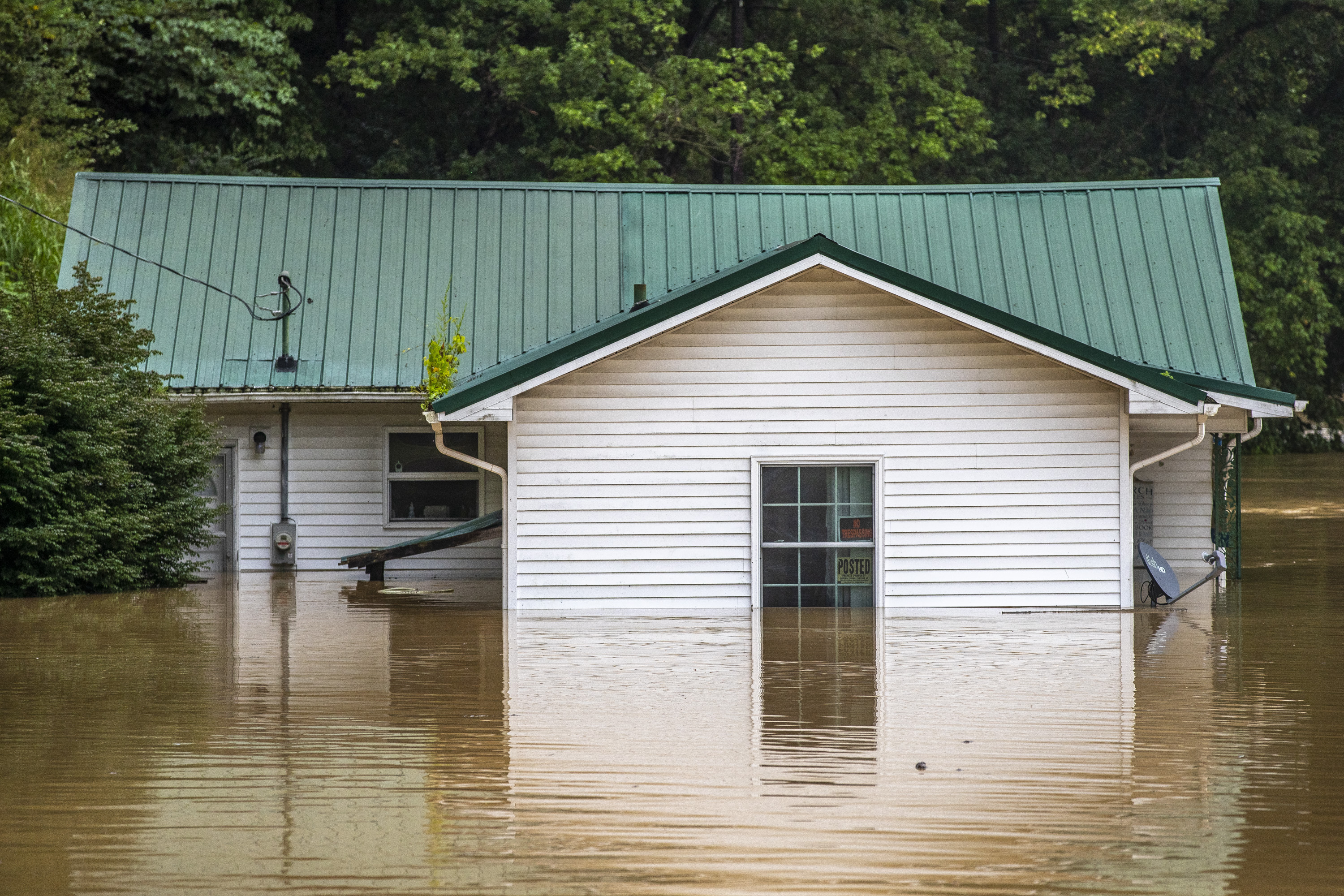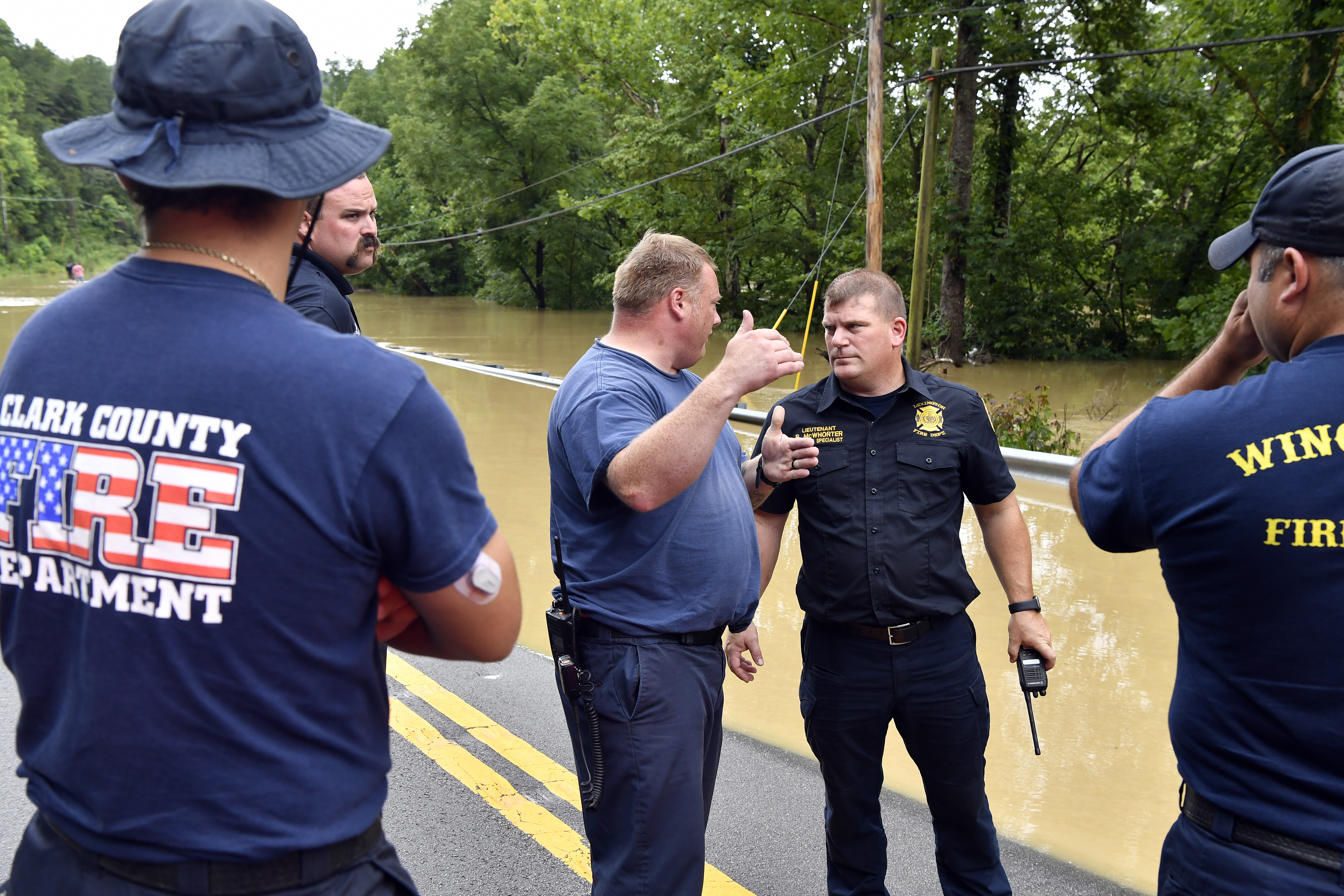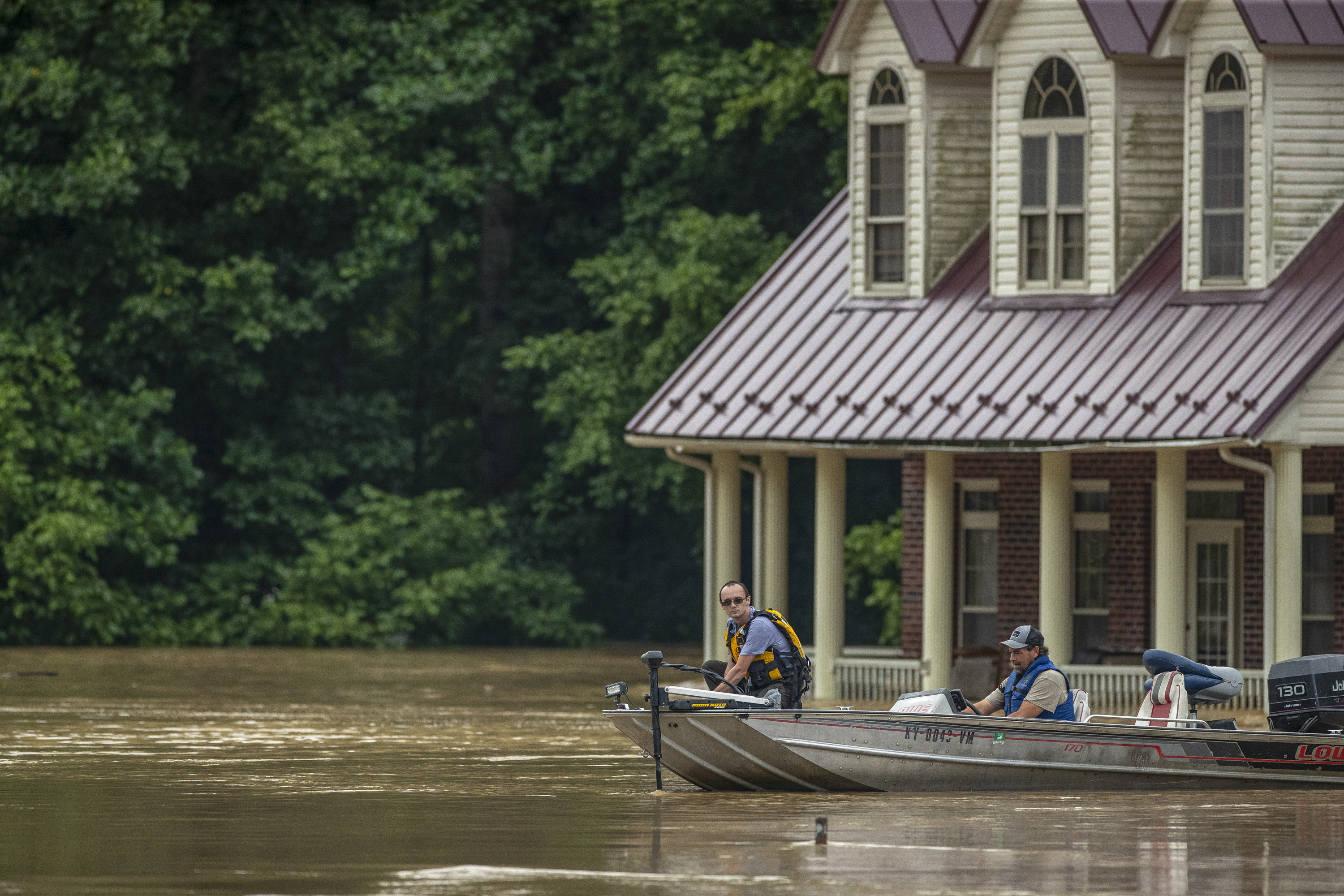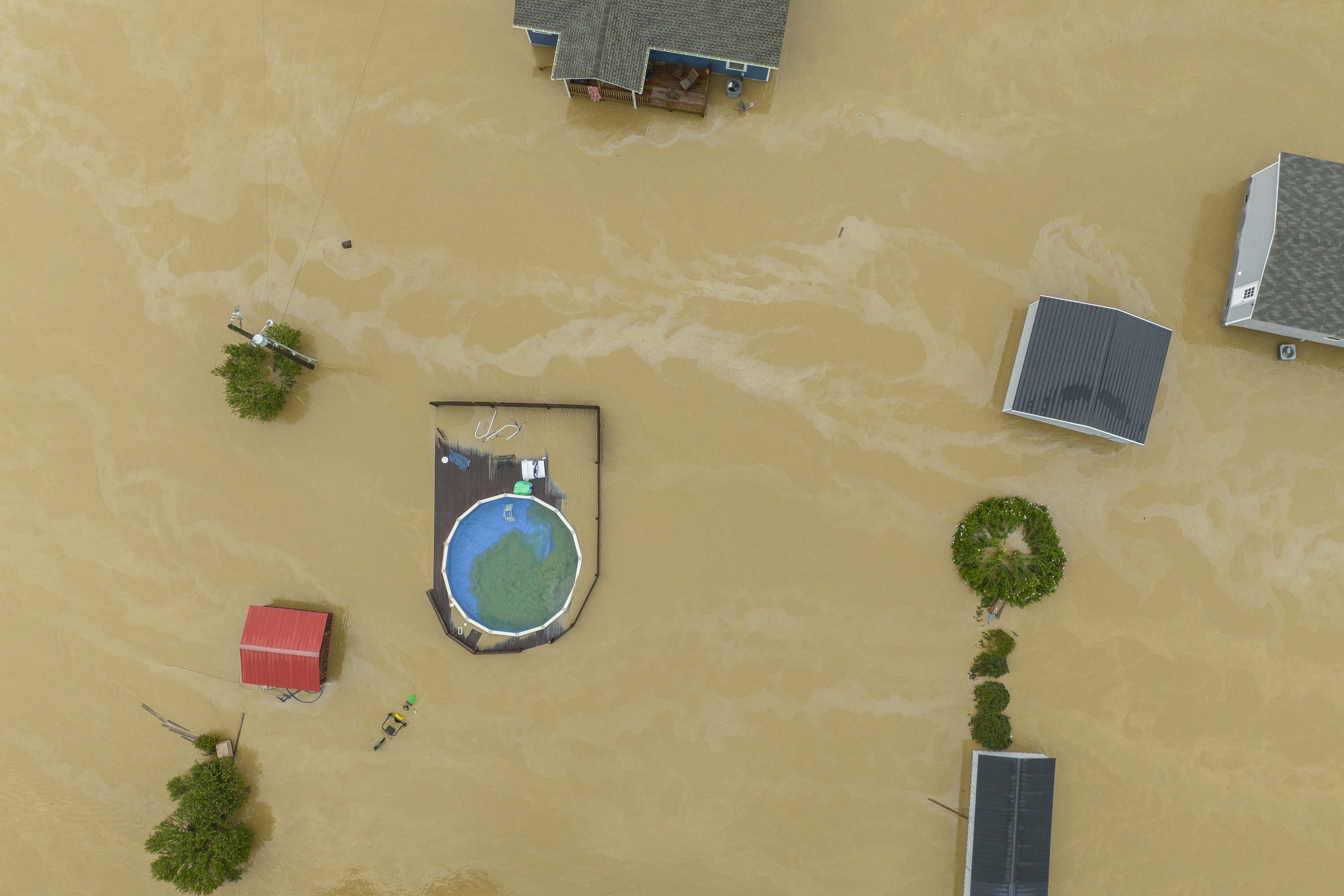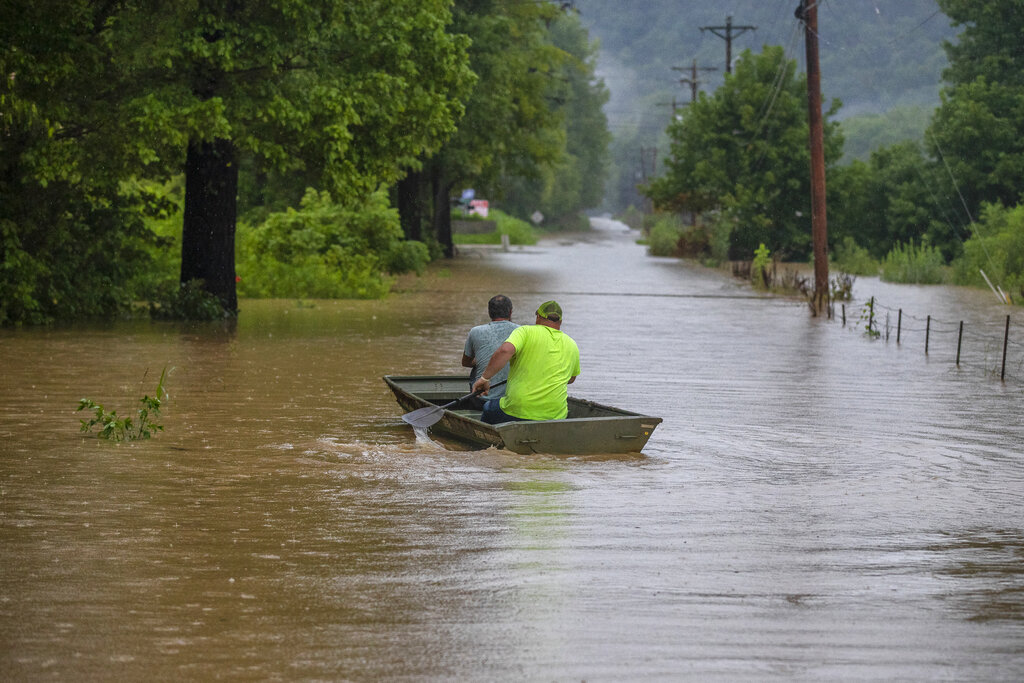Kentucky flooding death toll now 35, expected to rise
(NewsNation) — At least 35 people have died in flash flooding across Kentucky, the state’s governor confirmed during a news conference Monday.
More casualties have emerged as another round of rainstorms hit flooded Kentucky mountain communities Monday.
As of now, seven deaths have been reported in Breathitt County, two in Clay County, 16 in Knott County, 2 in Letcher County and 3 in Perry County, Gov. Andy Beshear said.
Hundreds of people currently remained unaccounted for five days after up to a foot of rain swamped one of the nation’s poorest regions.
Among those who died were four children from the same family, the Knott County coroner said. Beshear said the number of those who have died in the floods would likely rise significantly and it could take weeks to find all the victims.
Beshear ordered all state offices to lower their flags to half mast beginning at sunrise on Tuesday, Aug. 2, and ending at sunset on Sunday, Aug. 7 to recognize the loss that so many Kentuckians have been through. He also said he would light the Capitol dome and the Governor’s mansion green, the color of compassion, as he did during the peak of the COVID-19 pandemic.
Majority Leader Mitch McConnell (R-KY) gave an update on the Senate floor Monday, confirming the loss of life, damage and likelihood for more rains in his home state to the nation.
“30 Kentuckians have lost their lives amid the flash floods including children. And I think that number is likely to rise in the coming days,” McConnell said, calling it some of the worst flooding in the state’s history.
“They’re still experiencing rainfall today — the tragic crisis is far from over in Jackson. Waters reached 43.5 ft. high breaking an 83 year old record,” McConnell continued, citing drone footage of the town’s submerged roadways.
“We saw generosity all across the affected region. Residents with boats, jet skis and kayaks put their own lives at risk to rescue their neighbors, schools churches, parks and businesses open their doors to displaced families. As one resident put it over the weekend, ‘No matter what, Eastern Kentuckians help each other.’” McConnell continued on Monday.
More than 330 people have sought shelter, and there has been extensive property damage in the state.
Beshear, who flew over parts of the flood-stricken region on Friday, described it as “just total devastation, the likes of which we have never seen.”
“We are committed to a full rebuilding effort to get these folks back on their feet,” Beshear said. “But for now, we’re just praying that we don’t lose anybody else.”
The rain let up early Friday after parts of eastern Kentucky received between 8 and 10 1/2 inches over 48 hours. Some waterways were not expected to crest until sometime Saturday.
“From everything we’ve seen, we may be updating the count of how many we lost for the next several weeks,” Beshear said. “In some of these areas, it’s hard to know exactly how many people were there.”
The governor predicted it would take a least a year for the state to fully rebuild.
Damage to critical infrastructure and more rain on Sunday hampered the recovery effort.
As residents in Appalachia tried to slowly piece their lives back together, flash flood warnings were issued for at least eight eastern Kentucky counties. The National Weather Service said radar indicated up to 4 inches of rain fell Sunday in some areas, with more rain possible.
Gen. Daniel Hokanson, chief of the U.S. National Guard Bureau, told The Associated Press about 400 people have been rescued by National Guard helicopter. He estimated that the guard had rescued close to 20 by boat from hard-to-access areas.
At a news conference in Knott County, Beshear praised the fast arrival of FEMA trailers but noted the numerous challenges.
“We have dozens of bridges that are out — making it hard to get to people, making it hard to supply people with water,” he said. “We have entire water systems down that we are working hard to get up.”
Residents in four eastern Kentucky counties may qualify for disaster assistance from the Federal Emergency Management Agency (FEMA) to cover damages from recent severe storms, flooding, landslides and mudslides.
The federal funding is available to impacted residents in Breathitt, Clay, Knott, Letcher and Perry counties.
Beshear says that with the damage experienced in Floyd and Pike counties, he expects federal funds to be made available for those counties in the future.
“We are still focused on meeting the immediate needs of providing food, water and shelter for thousands of our fellow Kentuckians who have been displaced by this catastrophic flood,” Beshear said. “At the same time, we have started on the long road to eventual recovery.”
More than 15,000 utility customers in Kentucky remained without power Monday, poweroutage.us reported.
Austin and Brianna Imhoff lost everything in the flooding. They told Nexstar’s NewsNation they were still trying to process what had happened.
“You don’t really know what happened unless you’re living in it,” Austin said. “Unless you’re there and the water is rising a foot every five minutes, you don’t understand it.”
President Joe Biden on Friday approved a major disaster declaration for the Commonwealth of Kentucky and ordered federal aid to supplement commonwealth and local recovery efforts in 13 counties.
Perry County is one of the hardest-hit areas of the state. Almost everyone in the area suffered some sort of damage. Perry County Sheriff Joe Engle said his 82-year-old great-aunt drowned in the floodwaters.
“We’ve still got a lot of searching to do,” said Jerry Stacy, the county’s emergency management director.
Nonprofit groups like the Cajun Navy have stepped up to help with search and rescue efforts and are still asking for more volunteers to join their efforts, said Cajun Navy ground force founder Rob Gaudet.
He said “the clock is ticking” for people to save their homes.
“Communication systems are down, there’s a lot of danger,” Gaudet said. “The longer these homes sit, the harder it will be to repair them. Mold will set in … there’s enormous challenges to a flood.”
Intense downpours have happened across rural Appalachia, with steep hills and terrain of narrow river channels funneling water into Kentucky, Virginia and West Virginia. Water tumbled down hillsides and into valleys and hollows where it swelled creeks and storms coursing through small towns. The torrent engulfed homes and businesses and trashed vehicles. Some people were marooned on steep slopes by mudslides.
St. Louis, Missouri, has also seen a lot of rainfall, which has made it challenging for the paved city environment to soak it all up.
Scientists warn climate change is to blame for making these kinds of weather disasters more common.
“It’s a battle of extremes going on right now in the United States,” said University of Oklahoma meteorologist Jason Furtado. “These are things we expect to happen because of climate change. … A warmer atmosphere holds more water vapor and that means you can produce increased heavy rainfall.”
The Associated Press contributed to this report.











